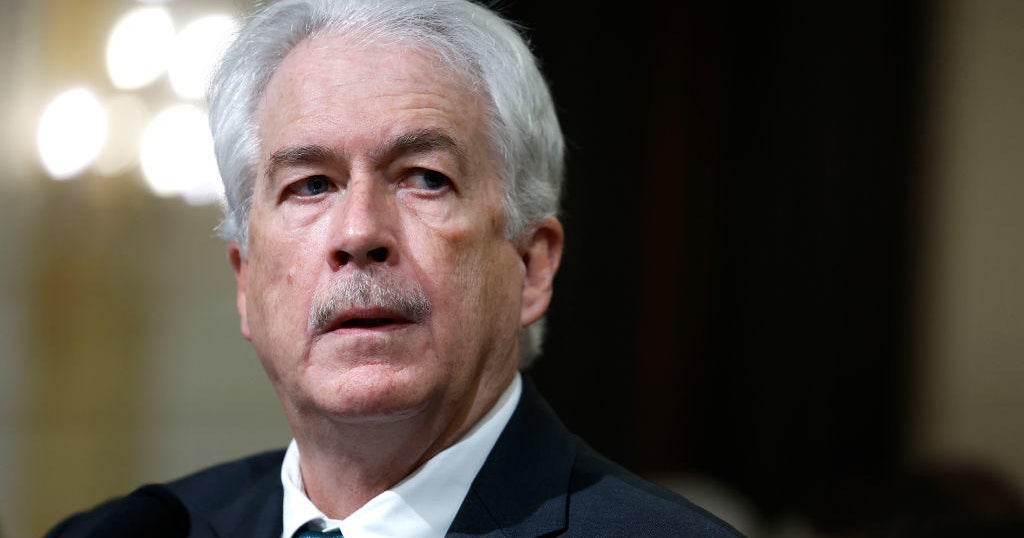Leaving Afghanistan would cause "greater problem" says former senior CIA paramilitary officer
The U.S. must maintain a strong presence in Afghanistan in order to both prevent the Taliban from regaining outsize power and keep the existing Afghan government afloat, says Phil Reilly, a former Special Forces soldier and CIA senior paramilitary officer who spent years in leadership posts in both Iraq and Afghanistan.
Reilly was among the ten officers that made up the first CIA team deployed to Afghanistan just fifteen days after the September 11 attacks.
"Absent U.S. presence, a strong presence helping to fight the enemy presence there," Reilly said. "I don't think the Afghan government can do it on its own. You would have a greater problem if we would leave."
In an interview with Intelligence Matters host and CBS News Senior National Security contributor Michael Morell, Reilly, who also served as the CIA's chief of station in Afghanistan and led its Special Activities Division, said U.S. capabilities in Afghanistan were "keeping things in check" – though he conceded that troop engagement was already protracted.
"I don't think that my grandchildren should be going to Afghanistan, but I don't see how we can remove the capability that is there," Reilly said.
Even the forces that do remain, he continued, "can't stop suicide bombs and attacks throughout the capital. The enemy can do that with impunity – and does," Reilly told Morell.
He added that the best outcome the United States could hope for to the conflict remained a "very, very tough question."
"I don't see any resolution to our current stance," Reilly said.
More than seventeen years have passed since the U.S. war in Afghanistan began in October of 2001. Between 14,000 and 15,000 troops remain deployed – levels far below a peak of 100,000 U.S. and allied troops that requested by former President Barack Obama in 2011. In all, U.S. spending on the conflict is estimated to have surpassed $1 trillion.
On Tuesday, in an attack that constituted the worst loss of life for the U.S. this year, three American soldiers were killed in a bombing near Ghazni City in southeastern Afghanistan. Just last week, chairman of the Joint Chiefs of Staff Gen. Joseph Dunford said the Taliban was "not losing."
"We used the term 'stalemate' a year ago and, relatively speaking, it has not changed much," Dunford said.
Reilly, who returned to Afghanistan in 2008-2009 to serve as the agency's Chief of Station, said going from "just a couple of us sitting in the Panjshir Valley with a couple of firearms" in 2001 to the U.S. presence at its largest made for a "completely different dynamic."
"We had over 100,000 troops there. And we had a very large State Department and international presence, trying to do what essentially was nation-building, and trying to do reconstruction in all the various provinces," he said. "It didn't work."
Still, he argued, the likelihood that the Taliban would offer safe haven to al Qaeda elements makes it essential that U.S. government capabilities prevent it from consolidating power. Military officials have estimated the Taliban has between 20,000 and 40,000 active fighters, and that it has recently increased its control of rural areas across the country.
"I do believe they'd give safe haven again," Reily said. "Unfortunately, al Qaeda's got other places to go now. There's a lot of ungoverned spaces now in conflict areas that they could go."
The Trump administration has ordered direct talks with Taliban officials in an effort to arrive at a negotiated peace. Earlier this month, the newly appointed U.S. special representative for Afghanistan, Zalmay Khalilzad, said he was "cautiously optimistic" about prospects for a settlement.
"I am talking to all interested parties, all Afghan groups," Khalilzad said, "and I think there is an opportunity for reconciliation and peace."



